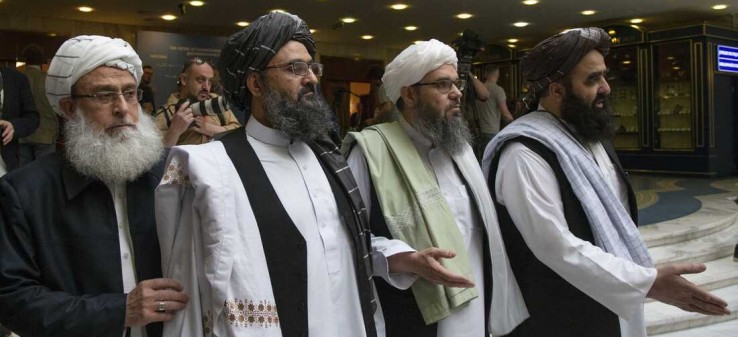One of the most important present concerns of Taliban is be recognized by international community, to this end, they spare no effort. As a major gathering held under the leadership of Taliban of Afghanistan with the presence of thousands of religious and tribal leaders which concluded with a statement demanding foreign states to officially recognize their government, it must be considered as the last ditch effort of the group to acquire international legitimacy. In its gathering, Taliban expressly demanded the regional countries as well as international community to recognize the Islamic State of Afghanistan.
It worth to mention that along with the most important demand from the international community, Taliban had other demands too, including and among them are lifting of sanctions, unfreezing the assets of the country’s central bank and supporting the development of Afghanistan.
But, none of the promises made by Taliban has been realized against the above demands, and none of domestic and international expectations existed to improve the situation of the country and interaction with other players of international community came to realize. As within almost a year, Taliban kept expecting other countries to recognize them without preparing internal situation. While, the most important internal background to be recognized is to transfer from a tribal government to a far-reaching national government towards which Taliban has not taken any step.
In the meantime, if we are about to present a report card of Taliban since they took office, we have to pay attention to examples like trampling women’s rights, preventing girls from educations, abolition of Afghanistan Constitution, laying off women from public offices, confiscation of assets, properties and houses of those who are not ready to cooperate with Taliban, forced migrations, violent treatment with political activists, violation of ethnicity rights, and preventing free and fair election. Questioning the internal legitimacy is the fruit of this kind of governance which can also challenge the acquirement of legitimacy at external level.
Having said so, it is very difficult to acquire possible legitimacy and to accept the important point that Taliban wants to rule a civil government with laws and regulations accepted by international community in Afghanistan. On the other hand, Taliban is no more a militant and combatant group, it has involved itself in politics; Yet, Taliban does not want and can not distance itself from its military aspect.
Therefore, we should accept the plain truth that Taliban government in Afghanistan will continue to follow its same former militaristic approach. So, within the coming years, we continue to witness the very same type and method of governance in Afghanistan. In fact, it seems that the way Taliban looks at both state as a phenomenon and relations between the states is still the militaristic look, and if the looking will not change soon to become political one, it may lead to deadlock and double disappointment.
The governments that oppose the recognition of the group have their substantiating reasons; including and among them are Taliban’s inability to establish security, suppression and slaughtering of opponents examples of which have happened in Panjshir and Balkhab, and division of tasks with other terrorist groups like ISIS as well as mismanagement of state administration in political, economic, social and cultural fields can be mentioned.
Acquiring internal legitimization is a preamble to acquire international legitimization and recognition of Taliban government in Afghanistan. In order to acquire legitimization, Taliban should pay attention to the internal situation of Afghanistan and should meet people’s satisfaction; to this end, i.e. acquiring domestic legitimization and popular charisma among rank and file people are summarized in some points; several steps should be taken including providing comprehensive and far-reaching services to people, finding solution for unemployment, and sorting out people’s economic problems, taking steps to form a far-reaching government and preparing the ground to compilation of the constitution as well as holding election.
To conclude, it must be said that while it is almost eleven months since Taliban government was established, their efforts to be recognized at regional and trans-regional levels led to nowhere. Since Taliban did not make any effort to remove these problems, a bright perspective will remain inconceivable to acquire regional and international recognition of Taliban, at least in short term.
The Complexities and the Necessity of Confronting ISIS-Khorasan
Strategic Council Online – Note: With the rise of the Taliban in Afghanistan, the issue of ISIS-Khorasan, the conflict between these two groups, and the expansion of the scope of their security threats in the region have become more critical than ever before, as the terrorist activities of this terrorist group disrupt regional security. In addition to this, support for suicide activities and armed individuals in the region has also put the security of Iran at risk. Therefore, ISIS-Khorasan is recognized as a significant threat to the eastern security of our country.
Dr. Hossein Ebrahimnia – Regional Issues Expert










0 Comments